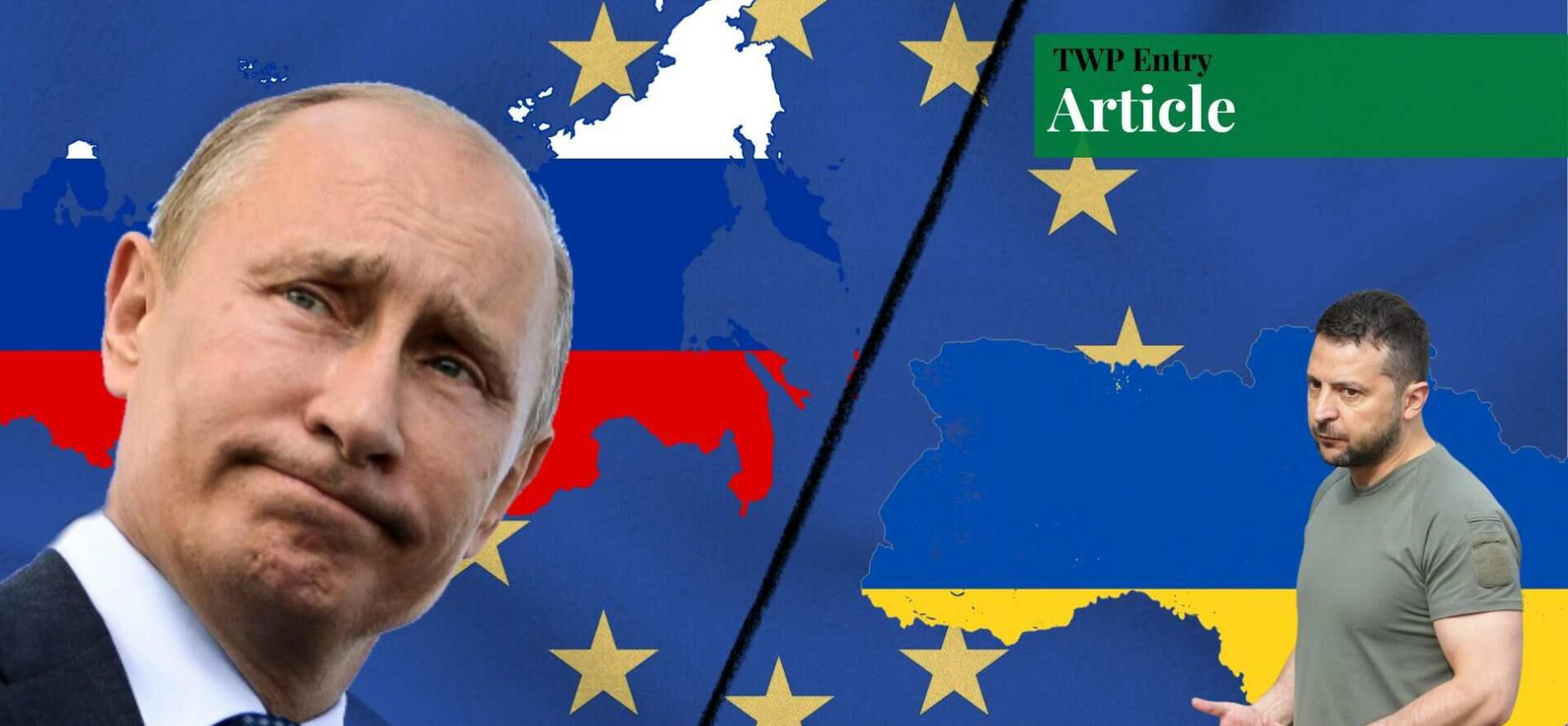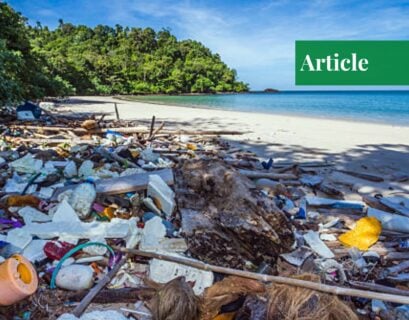Ms Alishbah Syed is pursuing her Bachelor's degree in International Relations from University of Peshawar.
Introduction
The Russian invasion of Ukraine came as a surprise to the West. President Putin, known for his adventurous but calculated foreign policy, came swinging with no intentions of stopping as of yet. This is despite clear damages done by NATO-backed Ukraine, but the thing that unravelled so clearly amidst this Russia-Ukraine war is Europe as a whole.
Both internally and externally, the most influential countries in the outcome of this war right after the US are evolving how they interact and how they will interact in the future. Europe’s future is interlinked with the progression of this war, and in turn, the war’s future is interlinked with Europe.
Interaction between Western Europe and Eastern Europe
It was thought by analysts that the Russia-Ukraine war would decrease the dependence of Europe on the US by a lot, but reality seems to be completely different. The amount of war aid from the US is far more than what the EU has given. There is an explicit expectation of the US to provide defence to Ukraine and the EU as part of its responsibility of preventing an armed attack against them in exchange for giving up nuclear weapons, also known as extended deterrence.
Eastern Europe, restless from such non-seriousness, has welcomed increased U.S. presence in Europe with open arms to cooperate with them in this war. This “open arm” policy of Eastern Europe towards the US has the power dynamics and the level of importance given by the US in Europe shifting. This shifting is away from “Old Europe” (France and Germany) which has always valued relations with Russia towards Eastern Europe (Poland and Baltic states namely) with their traumas of past Soviet Union domination.
With Eastern Europe’s extremely vocal support for the security issues of Ukraine, it has begun to gain weight in NATO and the EU. With the EU giving needed support in many decisions for arms provision that would have otherwise not happened, there is a big eastward enlargement agenda on the table.
Un-Natural Allies
From above, it can be observed that there is a different level of urgency for the survival and defence of Ukraine between Western Europe and Eastern Europe. In Western European countries, the urgency is restrained and ungenerous. On the other hand, in Eastern European countries, the urgency is energetic and generous. There are reasons for such a divide; geographical and historical reasons that ultimately question whether they truly make genuine allies or not.
The geographical reason is an obvious one. When your next-door neighbour’s house is up in flames, you’ll be rightfully reactive toward it and do anything to put it out. The reaction would be comparatively different if you were not neighbours but on the other end of the neighbourhood. Now on to the historical reason, the trauma of the Soviet Union on Western Europe has long since left Europe. On the other hand, it’s a completely different story for Eastern Europe. The complete domination of the Soviet Union over them made them less forgiving of the invasion. Currently, Eastern Europe also fears being next in Russia’s expansion list as they were once used as buffer zones.
The Grain Corruption
The grain corruption is the poster child of how serious problems can be overlooked in the chaos of war. In order to feed the commerce hunger of Ukraine’s economy and continue the global food supply due to the blockage of its black sea routes by Russia, agricultural products from Ukraine were allowed duty-free entry into Europe. This was so Ukraine could reach its customers in the Middle East and Africa during the conflict with Russia. However, this grain has only flooded the markets of Poland, Bulgaria, Hungary, and other EU countries that were only supposed to be transit routes.
The stockpiling in the warehouses and selling of these grains as domestic products has created logistical bottlenecks. This influx of Ukrainian products has plummeted the domestic product prices and sales in the affected countries, sparking widespread protest for the re-imposition of import tariffs on the produce to re-stabilize the domestic market. These protests and sour public opinions forced some of the countries to ban the imports of Ukrainian products.
Poland, a staunch supporter of Ukraine, is one of the countries that imposed a temporary ban. Ukraine sympathizes with the situation, but urges Eastern Europe to resume its product imports due to the dire situation of Ukrainian farmers during the war. In this dilemma, Eastern Europe has called upon Western Europe to share the burden. Although the EU has sympathized with the sufferings of Eastern Europe farmers and has decided to set up a fund to compensate for the loss, this situation becomes an obvious indicator of increasing grievances of Eastern Europe towards Western Europe’s lack of appropriate support and nonchalant attitude towards the burdens of its eastern counterpart.
Europe-US Relations
There is not much hidden regarding a certain aspect of Russian foreign policy strategy. It’s quite straightforward: “Oppose me? No gas/oil for you”. Nothing less, nothing more. You can imagine how awkward the prospect can be when you apply it to the Russia-Ukraine conflict context, but there is more than just oil and gas to Russia that disturbs the calm; it’s Russia’s presence as an enemy and rival of the US.
Despite Russia having significantly less influence overall as compared to China, US actions still show paranoia to the point of efforts to contain Russia to make sure it can never be on equal standing, and that paranoia has begun to push away its allies. Europe, a major ally of the US, is stuck in what is essentially a dilemma. In a war situation, economies destabilize and public opinions sour. It’s all part of the war. No one is left unscathed, and the EU is no different.
The EU’s energy sector is mostly under the control of Russia with no quick cheap alternatives as Russia retaliates by reducing energy against Western sanctions. The US is breathing down its necks for absolute support in its proxy war with Russia. This is along with shouldering the cost and protection of millions of Ukrainian refugees until 2024.
French President’s Dissatisfaction
In my opinion, we see the starting sign of “dissent” within the EU in France, specifically with President Macron. President Macron has shown his overall distaste towards NATO, specifically US dominance in the alliance, even before the invasion of Ukraine in 2019 through his comments for Europe to start thinking of itself as a “geopolitical power” to ensure it remained “in control” of its destiny.
One of Macron’s priorities in this war has been to push for the strengthening of the EU and European defence. Russian invasion has become an outlet for President Macron’s ambitions of regional dominance.
The Nord Stream Controversy
On 26th September, a flurry of detonations on both the Nord Stream 1 and Nord Stream 2 pipelines, connecting Russia to Germany, sent gas leaking at four locations — two in Denmark’s exclusive economic zone and two in Sweden’s exclusive economic zone. Reports showed that 100 kilograms of TNT were used. When considering the level of infrastructure of the pipelines and the multiple sites of a large number of explosives, the evidence at face value points towards state involvement.
The West had at first pointed the finger at Russia. Though it would seem unrealistic to hear such an accusation when the pipelines that were destroyed were of importance to Russia, there are certain reasons cited by the West that could match the type of strategies President Putin would employ. The reasons range from claiming insurance for the sabotage to having a justification in the international community for not sending over oil/gas to Europe, but investigations suggested no obvious foul play from Russia so far.
The US refuses to give details about the method of obtaining or the nature of the evidence while playing naive. Denmark, Sweden, and Germany began their separate investigations and have yet to put forward a single clue as to who did it. Russia is criticizing the credibility of the intelligence, complaining that it had been prevented from taking part in the investigations.
This situation increases the overall stakes of the Russia-Ukraine war, as Germany, the main beneficiary of the cheap Russian gas on which its economy ran smoothly, and the rest of Western Europe may change their support in this war situation towards Ukraine specifically and the US generally.
Ukraine and its allies are the main suspects. Especially considering this sabotage, the options between cheap Russian gas and support for Ukraine in war are nullified and only the choice of supporting Ukraine remains. The statement before is also the reason why Nord Stream 2 was opposed by Ukraine during its construction as it could lead to an increased dependency of Europe on Russian gas, putting Ukraine in an insecure position in Europe.
Any links towards Ukraine or its allies’ involvement may prompt a severe backlash from Western Europe, making maintaining a united front against Russia extremely hard. It is not unimaginable as US officials themselves admit that they don’t have a clear knowledge of Ukrainian decision-making despite the extreme dependence of Ukraine on the US.
The US is also considered to be a suspect. An American Journalist, Seymour Hersh, put forward an article pointing out President Biden’s “bring an end” to Nord Stream 2 if Russia invades and allegedly expert drivers that don’t report to Congress. This article concluded that the US was behind the sabotage. If Ukraine or its allies are found to be the culprit, this puts the US in a difficult position with its European allies.
If the US loses Western Europe’s support in this war, it would prolong the war and might have a possibility of some domino effect to give Russia the advantage and morale. If the US itself is found to be the culprit, it would violate US promises to minimize direct conflict with Russia. Though the US may deny its involvement, past behaviours of lies to justify the Iraq war, Afghanistan papers, and Pentagon papers showcase that such denials should be taken lightly.
Conclusion
Even the continued presence of the US in Europe does not guarantee Europe’s continued support for Ukraine or Russian aversion, nor does Ukraine becoming an “American affair” means total victory even if the war is won. It isn’t just territorial integrity and sovereignty that is needed for Ukraine to win, but also stability and prosperity after the war to justify the sacrifices rendered for this war, especially if the US wants Ukraine in NATO and closer to Russian borders.
Although the Russia-Ukraine war has fostered new solidarity, it has equally been creating cracks in European solidarity as a whole. This slow change has resulted in constant disagreements about how the war should end. Only time will tell how Europe’s uncertain future will end up affecting the outcomes of the war.
If you want to submit your articles, research papers, and book reviews, please check the Submissions page.
The views and opinions expressed in this article/paper are the author’s own and do not necessarily reflect the editorial position of Paradigm Shift.


















